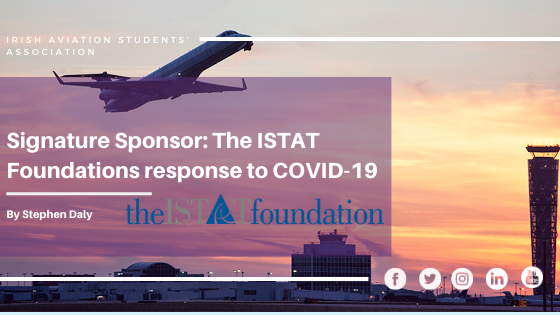In times of crisis whether pandemic or natural disaster related, communities need assistance, fast. Each area affected is vulnerable and requires aid in the immediate aftermath of such an event. The aviation industry has tremendous leverage in its ability to relocate supplies to such afflicted areas. Unfortunately, identifying, locating and co-ordinating such responses isn’t easy. The logistical challenges can be insurmountable at times, with an array of adverse variables affecting such an operation.
Enter Airlink – a rapid response humanitarian relief organisation that bridges the gap between airlines and aviation logistics partners with non-profit organisations responding to such events around the globe. Since the organisations’ inception in 2010 by the International Society of Transport Aircraft Trading Foundation (ISTAT Foundation), the organisation has contributed over $1.6 million of support to such initiatives.
Initially founded in response to the earthquakes in Haiti, Airlink has transported in excess of 5,000 passengers and more than 3,000,000 pounds of cargo supporting an array of humanitarian initiatives. The model of the organisation is simple – through the generosity of airlines and industry sponsors, Airlink can locate supplies and personnel either cost free, or free of charge. In mitigating the financial burden of transport, the humanitarian relief partners can allocate additional finances to resources required.
How has Airlink contributed to COVID-19? The following are just a few of the plethora of missions carried out by Airlink over the past few months:
- Airlink and its aviation partners have delivered over 18,000 pounds of cargo to China and Japan.
- Airlink has also brought together Project Hope, MedShare and Polar Air Cargo to transport over 14,000 pounds of supplies to Wuhan, China – the epicentre of the outbreak.
How is this done? Preparation begins much sooner than any crisis. Human relief organisations are pre screened in conjunction with Airlink building rapport with airlines and cargo operators. In doing so, they dramatically decrease the delay in delivering essential goods once the crisis strikes.
So, who are ISTAT? Founded in 1944, the ISTAT Foundation’s main goal is to support individuals and institutions that promote the advancement of commercial aviation and humanitarianism. ISTAT, a non-profit entity, was established to promote aviation opportunities amongst industry professionals such as forums and educational opportunities. Although the two organisations share the same name, the ISTAT Foundation’s Board of Trustees is a separate body from the ISTAT Board of Directors and manages fundraising and programming that aligns and is coherent to the ethos of the company.
In conjunction with humanitarian aid, the ISTAT Foundation supports other ventures that aid the aviation community. One of these are aviation scholarships, helping young people develop careers in aviation by offering scholarships to college-level students who are academically qualified and in need of financial support. More information can be found on https://foundation.istat.org/ .
